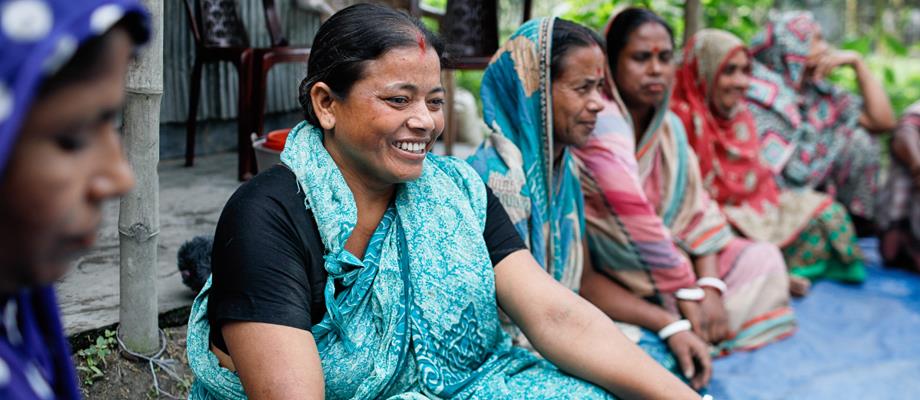Persistence and profits pay off
Investing in female entrepreneurs improves livelihoods in Bangladesh.

Renu Bala was one of over 5 500 farmers, government staff and agricultural technicians who took part in capacity development programmes led by FAO. © FAO / Mohammad Rakibul Hasan
Knocking on closed doors is something Renu Bala is very good at.
First, it was the doors of her neighbours in Panjor Bhanga, her home village in northern Bangladesh. She had an idea for them: what if they formed a milk cooperative?
They didn’t have much to lose. “The women of this village are very poor and raise only local Deshi cattle,” Renu explains. “I thought that if I could start a dairy business, and encourage other women to join, if I could make them aware, then we could all profit.”
In Panjor Bhanga, profit through agriculture is increasingly hard to come by as frequent flooding submerges farmland and roads. Bangladesh is one of the countries most threatened by the effects of climate change.
With this in mind, Renu Bala went from house to house and pitched her plan. Most of the women, and their husbands, were skeptical at first.
“Generally, the village women are very shy. That’s why it is very difficult to bring them all together,” she says. “At first they thought we were trafficking women.”
But in the end, she won them over. By 2011, 15 women had joined the Panjor Bhanga Women’s Milk Cooperative. Their next challenge: finding a way to buy high-yielding cattle, especially when none of the women had sufficient collateral for a bank loan.
Renu Bala and her husband counting daily receipts from milk sales by the Panjor Bhanga Women’s Milk Cooperative. ©FAO/Mohammad Rakibul Hasan
In 2014, Renu Bala took part in a training programme led by FAO where she learned about a special credit policy in Bangladesh that provides loans to small dairy businesses at low interest rates and with long repayment periods.
But first, she had to find a bank that would lend to her under that policy. Her door-knocking skills and perseverance kicked in again. After many attempts, Renu Bala worked with FAO and received a loan from a local bank.
